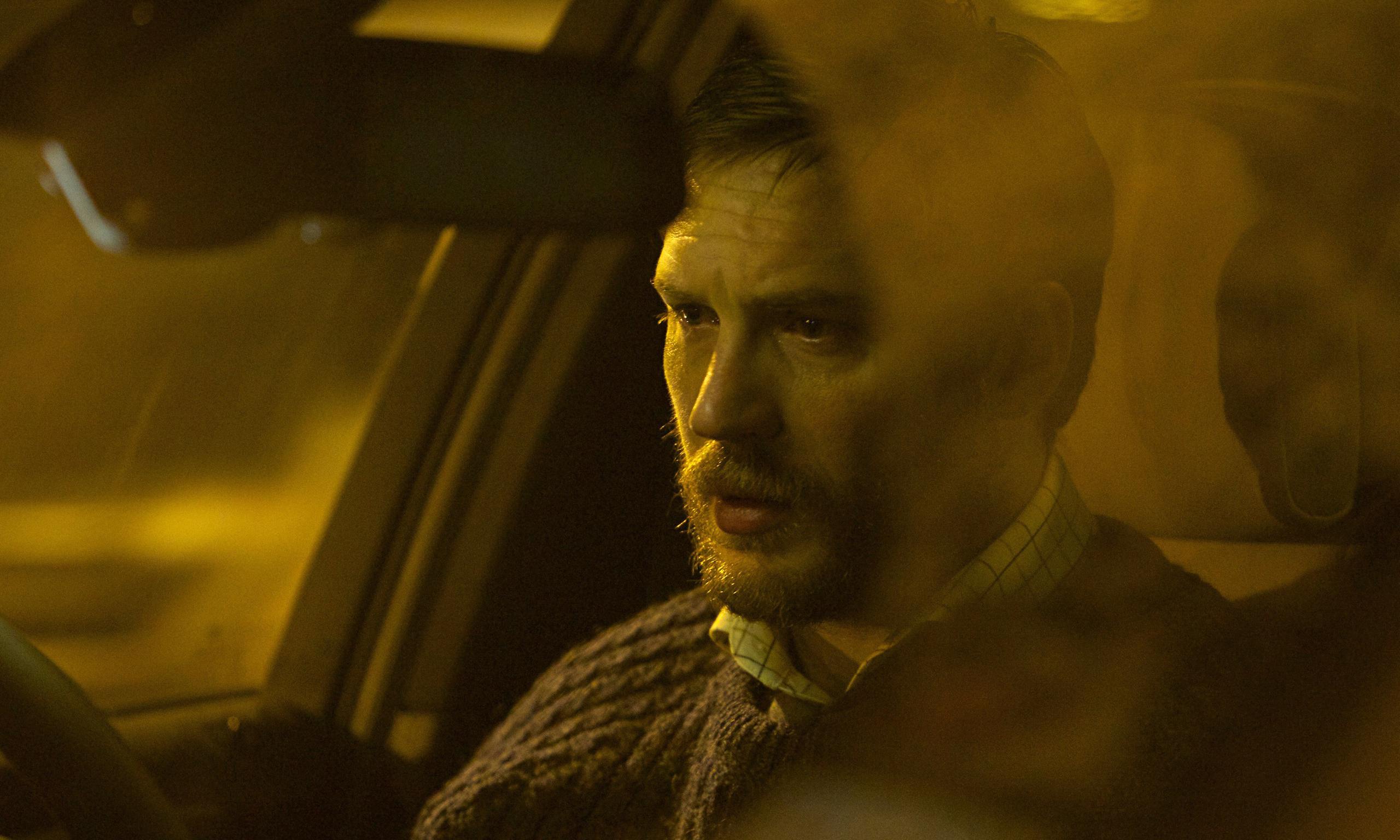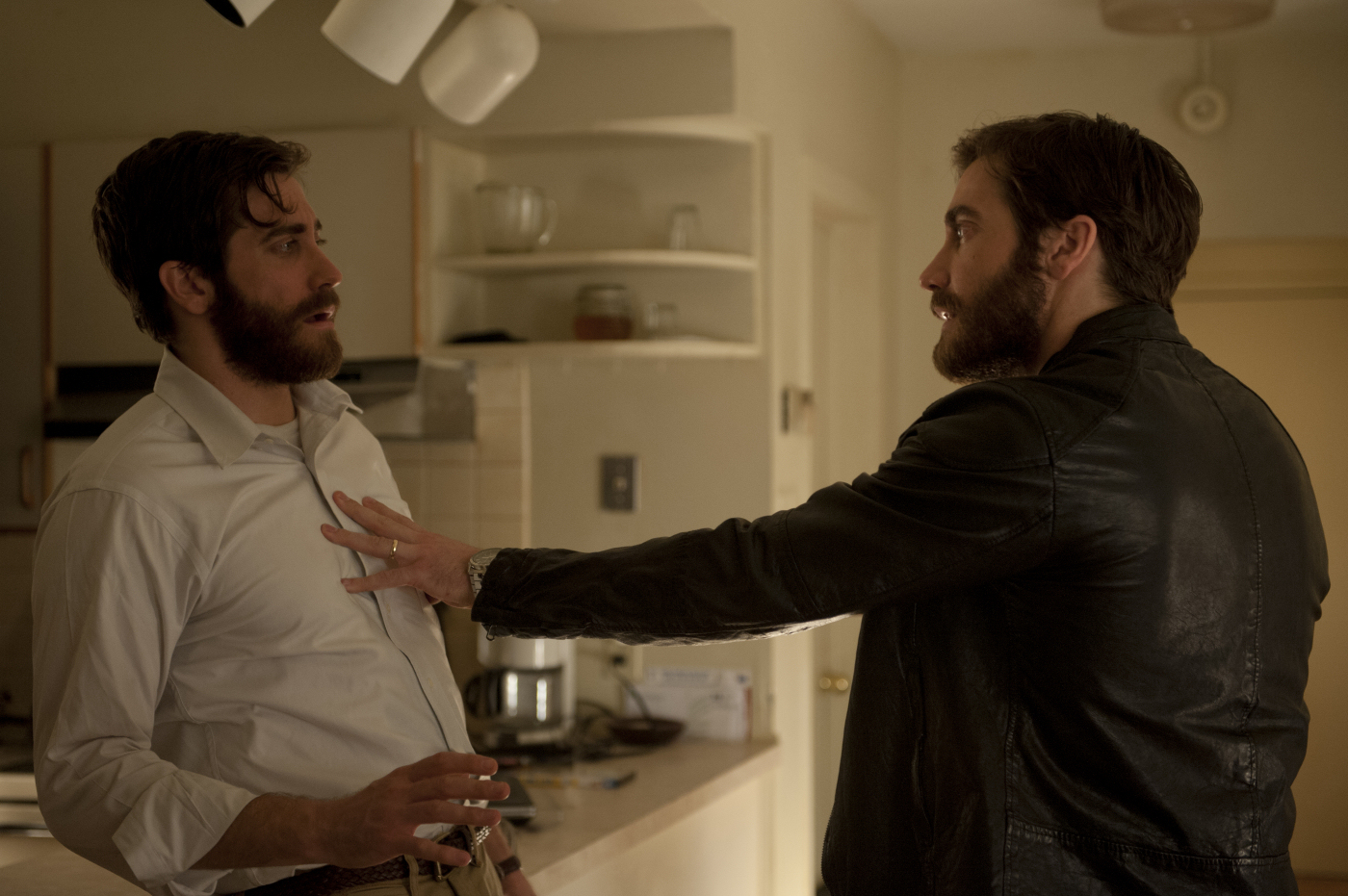Locke. Or "Tom Hardy in Welsh Accent Controversy" as some may deem it after the opening credits. This is a film about a man driving a car from Birmingham to London. That's it. Nothing more, nothing less. So when we hear Hardy's first mumbled utterances delivered with a thick Valley brogue, it's such a far cry from his Bane or Bronson (or any other character he's thus far proffered up) that you can't help but smile. You know you're going to be stuck with this accent for the full duration, but if anyone has the chops to pull it off, Hardy does. And while Locke may not be an outright masterpiece, it's a beautifully constructed, tight-as-a-drum tinder box of tension and too-close-for-comfort emotional wrangling that sucks you in and leaves you drained.
Not only is this a film about a man driving a car, but who would have thought the workaday worries of the concrete industry would make for a nail-biting plot device? Adultery sure, that makes sense. Locke sees fit to deal with that too. But concrete? Most would consider that too tough a nut to crack. C6 tough, to be precise (a concrete joke for you there - any builders reading will be LOVING that). To director and screenwriter Steven Knight's credit, the perceived mundanity of the subject matter gives him the opportunity to focus on just what Hardy does with it; there's plenty of great actors who could have given this film a shot, but Hardy graces the screen with an effortless magnetism, without ever spilling over into a forced rage or an over-stretched monologue ('too much acting' as Bradley Pitt might have it).
Having driven away from a massive concrete pour for which he's the foreman responsible, Ivan Locke (Hardy) calls his family to tell them he won't be home for the evening. Turns out he's quite the dark horse, having had a one night stand several months earlier which unfortunately has led to pregnancy. The standee in question, Bethan (Olivia Colman), having gone into premature labour, is only ever heard on the other end of Locke's carphone - her name viewed on a dashboard screen that puts up a pretty robust fight for a supporting actor credit with the amount of calls it receives. With this potential catastrophe in one hand he juggles his colleagues in the other, tempers flaring as he's accused of having taken leave of his senses with so much at stake back at the building site (it's the biggest concrete pour in Europe, so it is). You don't have to be a genius to join the dots from here on in, things getting pretty damn heated inside Locke's SUV; his wife finds out the truth. His job is on the line. He might not make it to the birth. He's up shit creek, but hey - he's got a nice car for a paddle. Every cloud and all that.
Now Locke isn't the first film to focus on a single leading man for most (or all) of its running time. Cast Away, Buried and 127 Hours all put up similar fights, but where they differ (especially the latter two) is the expected flights of fantasy to break the potential tedium of having one actor carry an entire film from beginning to end. Locke doesn't do that. Not even close. In fact it's so fixed on Hardy and his masterclass in restraint that, save for the establishing and closing scenes, Knight shoots almost all exterior shots in soft focus, car headlights and motorway signs both a proverbial and literal blur for Locke and the viewer, forever drawing our attention back to his plight as he wrestles with dilemma piled upon dilemma. And while concrete might not be in everyone's catchment zone of expertise, adulterous behaviour may well be. It's in this area that Locke excels, drawing palm-sweating realism from a very difficult situation that may prove to be too uncomfortable for some palettes.
Knight may have poured some seriously sturdy foundations for Locke to stand on, but this is Hardy's show all the way. His Bronson may have been crazed and his Bane grandstanding, but with Ivan Locke he gives us a man you may not agree with, a man you may possibly hate, but you can't help but feel sorry for. You want him to win, even if his winning means losing everything. It's a complex, difficult, nigh on impossible role, but Hardy shows us exactly how it's done. And with a Welsh accent too. Now that's talent.




